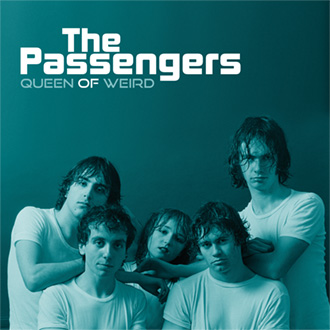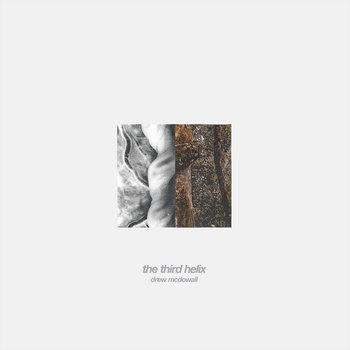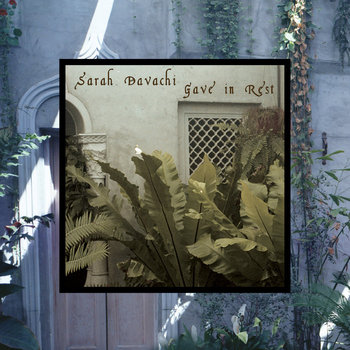News & Events

An album/artbook documenting Sean McCann’s recent chamber compositions. Ranging from the 10-person ensemble performance of "Portraits of Friars" at Fylkingen, Stockholm in February 2018, to his first quartet piece "Victorian Wind"performed in Toronto in 2014. McCann’s scores leak pastoral and bizarre passages, dancing in the banal beauty of sound poetry. The performances feature guest musicians Sarah Davachi, Zachary Paul, Geneva Skeen, Celia Eydeland, Maxwell August Croy and more.
The book holds in-depth scores, program notes, and photography by McCann. A lovely compliment to finger through while you lay down to listen to the disc. It holds text and imagery from the pieces, along with musical notation.
The notes for "Pistons" follow here:
I assembled this piece while wanting to make my life of leisure and gluttony in London somehow artistic. I was in London for a week or ten days in October 2017 for a business trip. I love London. I love doing two things at a time or more. So it worked out.I find I have a hard time enjoying anything unless I am multitasking. For example right now as I type this description I am also drinking old coffee with ice-cubes in it, exporting a master from Pro-Tools downstairs, and watching Friday the 13th: A New Beginning on the television set.
So in this British multitasking I decided to work on a piece of music while indulging in food and drink roaming around London. I was also reading Baudelaire’s Les Fleurs du mal during these outings (talk about sentimental). Some elements of those poems crept their way, drawn out of order, into Celia’s singing text.
As with all my compositions to this point, they are left open to interpretation – no real meaning, just flickers of settings and emotions.
The taste of everything below (the score) spawned thoughts of colors and elements and people and emotions, though with the text I decided to keep it simply about the food and the beverages. The romantic music and singing is the rendering of the emotions I felt, while my banal reading was the actual act of consumption. I recorded the text while lying down in my childhood bedroom in Goleta, California. Half asleep just trying to get it over with. A fitting situation for the piece: forced beauty.
"I had the great pleasure to perform on two of the pieces within this unique collection of Sean’s work. What I admire most about Sean’s process is his ability to synthesize various prosaic experiences of day-to-day life so delicately and so beautifully within numerous contexts – music, speech, sound, text, visual imagery, and physical space. Although these four works each offer a particular frame to an indefinite moment, they are united in my mind by a sort of latent simplicity. Their classical orientation is unconventional – it is not the pastoral mechanism at work here per se, but rather the lingering aftertaste of a place and a time, unfolding in a decidedly visceral manner. Hearing these works again in their recorded format, I am reminded of the deliberate hand behind the composition, and the careful pacing and placement of the musical experience here, both as it manifests in the player’s awareness and as it is quietly subsumed into the elegant folds of the collective whole." -Sarah Davachi
More information can be found here.

Distant Animals is the artistic output of Daniel Alexander Hignell, a researcher and sound, video and performance artist from South East England. Hignell has developed a practice indebted to political and participatory resonance of creative acts, interrogating notions of autonomy, collaboration, and the tension between sense (what is perceived by the senses) and sense (what is made sensible by the community). He has recorded, written, performed and researched numerous socially-oriented sound works across Europe, often choosing to work with a diverse range of collaborators, including visual artists, choreographers, theologians, lawyers, and political activists.
In 2017 he completed an AHRC-funded doctorate in composition exploring the social function of art-making, of which Lines constitutes the first of several sonic responses. Inspired by a 130-page text-score, and performed upon a modular synthesizer, the work explores participatory approaches to performance, utilizing text that leads its performer to undertake emergent and evolutionary changes in timbre and rhythm over extended time periods.
Drawing upon the works of La Monte Young, Morton Feldman, Eleh, and Mauricio Kagel, the album employs a highly conceptual approach to its genre, incorporating the notion of the drone as both a compositional method, a spiritual approach, and a participatory tool for engaging its audience. Although ostensibly a musical work, the movements and relations the score invokes are designed so as to be applicable to any context - mowing the lawn, fixing the sink, having an argument, or even going for a walk. It is from this diversity that the musical content is born – as the work is constructed via site-specific interpretations of the scores core text, passages are invoked not to arrive at a specific musical point, but as a means of a more general rumination, an engagement with the works ecological context that encourages slow, emergent phrases that unfold over time.
With this open-ended approach to composition, Lines relies on conceptually rich sonic phrases, exploring over its length both the purity of a musical tapestry that amounts to little more than a complexly modulated square wave - often pushing the filters that shape it to near breaking-point - and the rhythmic dissonance of the voice, noise, and distorted bells that erupt violently from it as the work progresses.
The album contains a pack of 4 postcards, documenting a land-art intervention undertaken during the creation of the score. Included in each pack is an individually hand-stamped and numbered print, created by inclusive artist Layla Tully, and responding to the album's central theme - materiality, substance, emergence, and the process of 'line-making.'
More information can be found here.



For this third release on Dais, Drew McDowall reaches into concept, ritual, and immersion, in an exercise of unravelling the DNA of hallucination. The Third Helix is McDowall’s product of deconstructive exploration, twisting the fibers of being into new structure, shape, pattern, and pulse, without reconstituting its inscribed template.
The result is a true "third act," in McDowall’s career, that has seen him peregrinate from the late-’70s art-punk of the trio Poems to his work with Psychic TV and Coil throughout the '80s and '90s, into his current home of New York City, where he has composed with CSD, Compound Eye, as well his solo work. That triangulation is central to The Third Helix, as it begins with his dive into the existence of a sensory toolkit unique to McDowall before twisting faculties and reconfiguring consciousness by honoring inherent power, cognizant of memory yet agnostic of context.
With the tenet that journey is rarely linear, but rather an omnipresent oscillation of matter, sound is stripped to salient and primal, propelled by McDowall’s boring into the core of memory and impulse, suturing together the silent awareness of excogitating experience.
Featuring eight new tracks of McDowall’s dark, experimental electronics, including the opener "Rhizome," The Third Helix is a churning descent into emotion, provoking thought and reflection while carving out haunting space only to fill it with baffling and wondrous structures of layered sound. McDowall solidifies himself as an architect who transforms otherworldly materials into something fascinating and challenging in the process.
Unnerving, trancelike anthems for nervous meditation and anxious relaxation. Fans of Coil will immediately connect and immerse, while the complex compositions are a welcome listen for drone and ambient enthusiasts.
The Third Helix is released September 21, 2018 on digital and standard black vinyl LP, as well as limited edition clear vinyl (100 copies), translucent red vinyl (400 copies) and translucent amber (500 copies). Packaged within a thick sturdy matte sleeve jacket featuring artwork/design by artist J.S. Aurelius (Ascetic House/Marshstepper).
More information can be found here.

Editions Mego is proud to present the first outing from the legendary English musician, songwriter, composer and producer Simon Fisher Turner alongside the highly acclaimed emerging Swedish sound artist Klara Lewis.
Care is a unique outing rife with delicious dichotomy. The opening track positions the aggressive directly against more fragile moments. On the subsequent track, medieval melodies sprout from a dense rhythmic hiss. Witness a Middle Eastern song appearing amongst a haunted rattling reverb in the epic "Tank" whilst a beautiful force of hope can be found within the sound world of the the closing track "Mend."
The wide scope of references and constant pull of forces make this debut offering a timeless patchwork of sonic spaces. Care is an album which sways in such a salubrious manner one can’t help but delight in its unique form of location/disorientation.
More information can be found here.

Building from a reputation of arresting live performances and critically acclaimed releases Puce Mary breaks new ground with The Drought, evolving from the tropes of industrial and power electronics to forge a complex story of adapting to new realities. Remnants of noise still exist, sustaining the penetrative viscerality offered on previous records, however, The Drought demonstrates an intention to expand on the vocabulary of confrontational music and into a grander narrative defined by technical and emotional growth.
Bringing together introspective examination with literary frameworks by writers such as Charles Baudelaire and Jean Genet, Puce Mary’s compositions manifest an ongoing power struggle within the self towards preservation. The traumatized body serves as a dry landscape of which obscured memories and escape mechanisms fold reality into fiction, making sense of desire, loss and control. The Drought presents both danger and opportunity; through rebuilding a creative practice centered on first-person narrative and a deliberate collage of field recordings and sound sources Puce Mary injects an acute urgency across the album seeking resilience.
"To Possess Is To Be In Control" makes use of lyrical repetition as an ambiguity of two selves, or a divided self, attempting to consume one another, while "Red Desert," named after Michelangelo Antonioni’s 1964 film, portrays the individual subsumed by surrounding environmental forces. The seven-minute epic "The Size of Our Desires" acts as the emotional tipping point of the record; amongst the ominous drone and dense feedback flutters almost-beatific melodies, while the lyrics reveal a romantic call to be swept up in the midst of an increasingly uninhabitable world.
Rather than escape, The Drought dramatises a metamorphosis in which vulnerability is confronted through regeneration. Noise and aggression no longer act as an affront to react against but part of a 'corporeal architecture' where space, harmony and lyricism surface from the harsh tropes of industrial music. The Drought chronologizes the artist's transformation through a psychological famine, new ways of coping akin to plant survival in a desert – to live without drying out.
More information can be found here.

Building from a reputation of arresting live performances and critically acclaimed releases, Puce Mary breaks new ground with The Drought, evolving from the tropes of industrial and power electronics to forge a complex story of adapting to new realities. Remnants of noise still exist, sustaining the penetrative viscerality offered on previous records. However, The Drought demonstrates an intention to expand on the vocabulary of confrontational music and into a grander narrative defined by technical and emotional growth.
Bringing together introspective examination with literary frameworks by writers such as Charles Baudelaire and Jean Genet, Puce Mary's compositions manifest an ongoing power struggle within the self towards preservation. The traumatized body serves as a dry landscape of which obscured memories and escape mechanisms fold reality into fiction, making sense of desire, loss and control. The Drought presents both danger and opportunity; through rebuilding a creative practice centered on first-person narrative and a deliberate collage of field recordings and sound sources Puce Mary injects an acute urgency across the album seeking resilience.
"To Possess Is To Be In Control" makes use of lyrical repetition as an ambiguity of two selves, or a divided self, attempting to consume one another, while "Red Desert," named after Michelangelo Antonioni’s 1964 film, portrays the individual subsumed by surrounding environmental forces. The seven-minute epic "The Size of Our Desires" acts as the emotional tipping point of the record; amongst the ominous drone and dense feedback flutters almost-beatific melodies, while the lyrics reveal a romantic call to be swept up in the midst of an increasingly uninhabitable world.
Rather than escape, The Drought dramatises a metamorphosis in which vulnerability is confronted through regeneration. Noise and aggression no longer act as an affront to react against but part of a ‘corporeal architecture’ where space, harmony and lyricism surface from the harsh tropes of industrial music. The Drought chronologizes the artist’s transformation through a psychological famine, new ways of coping akin to plant survival in a desert – to live without drying out.
More information can be found here.

"In the wake of our recent 2xLP reissues of Radio Amor and Haunt Me, Haunt Me Do It Again, we're pleased to announce Tim Hecker's proper return to the label with a brand new full-length recorded in Japan utilizing a traditional gagaku ensemble: Konoyo. Worldwide release date is September 28th.
Hecker will also stage a series of special performances in tandem with the album's release in Tokyo, London, Krakow, and Berlin."
More information can likely be found here soon.

Sarah Davachi has quickly risen in prominence since her first release five years ago, and Gave In Rest represents her highest artistic achievement. By infusing her compositional style within a predilection for medieval and Renaissance music, Davachi unearths a new realm of musical reverence, creating works both contemplative and beatific, eerie yet essentially human. Gave In Rest is a modern reading of early music, reforming sacred and secular sentiments to fit her purview and provide an exciting new way to hear the sounds that exist around us.
Between January and September of 2017, Sarah Davachi lived in flux; storing her belongings in Vancouver, she spent the summer in Europe, occasionally performing in churches and lapidariums and seeking respite from her transitional state while surrounded by such storied history. Gave In Rest echoes that emotional state of solitude and ephemerality, reaching towards familiar musical landscapes but from oblique perspectives.
"I've always been a pretty solitary person, but that summer I discovered quiet moments to be increasingly valuable," says Davachi. "I became engaged in private practices of rest and rumination, almost to the point of ritual." Though not religious, she sought ecclesiastic environments, compelled by "the quietude, the air of reverence, the openness of the physical space, the stillness of the altars." She sat for hours in muted spaces and listened to how church instruments augmented them – their pipe organs, their bells, their choral voices – and resolved to, "tap into that way of listening." She set a goal to musically embody this secular mysticism, and Gave In Rest is the result.
Out September 14th, 2018. More information can be found here and here.

